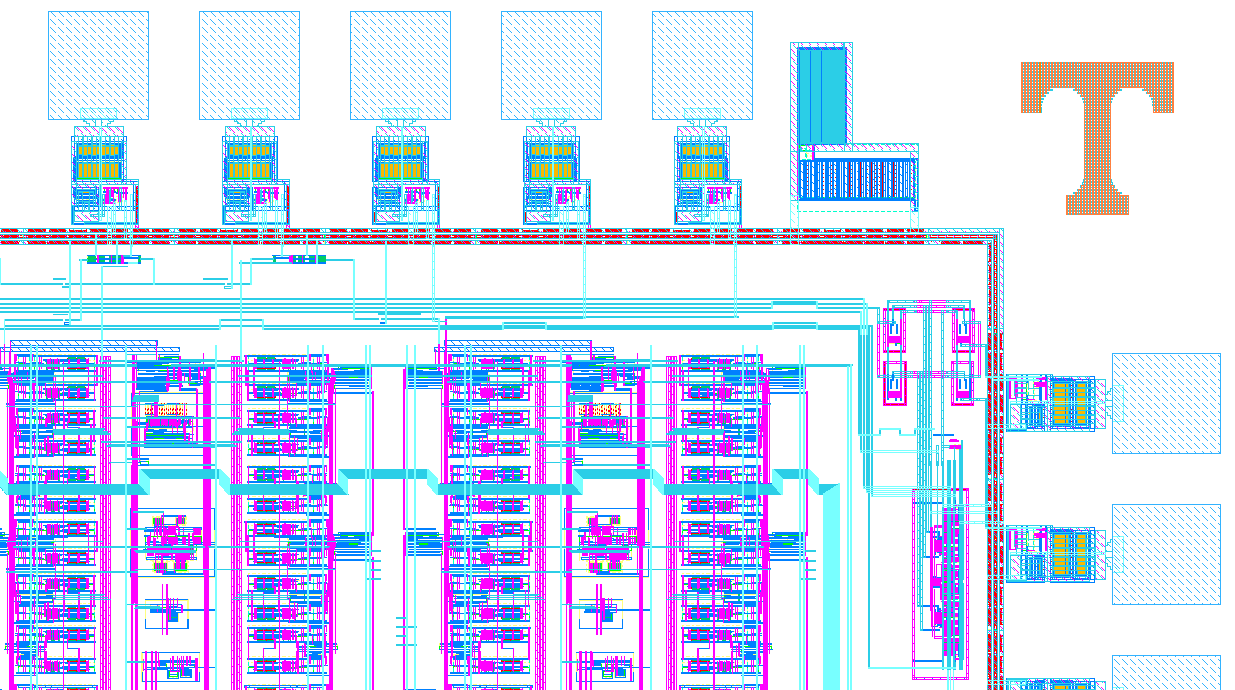Nanoelectronic Circuit for Digital Logic and Memory
The field of nanoelectronics is often defined as being concerned with any technology whose feature sizes are on the order of just a few nanometers (1×10-9 meters). Many in the field have performed experiments that have shown how such devices could be fabricated with useful properties such as recitification, hysteresis, and negative differential resistance (NDR). Our work in this regard focuses on the uses of such novel devices for the implementation of computer architectures whose behavior often deviates from that of traditional designs. In the past this has even included exploring ways to building computers from organic molecules. To date, our research has led to low-level design techniques for implementing nanoscale electronic circuits. Our circuit-level approach (taking actual experimental data to build up device models) has led to molecular electronic programmable logic circuits, neuromorphic systems and nanoelectronic hardware security primitives. By leveraging the often exotic behavior of nanoelectronic devices this research aims to develop new computer architectures that are smaller, more cost effective and less power hungry as compared to traditional systems.
